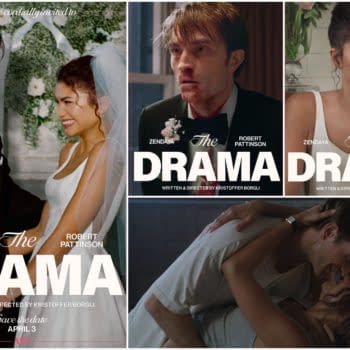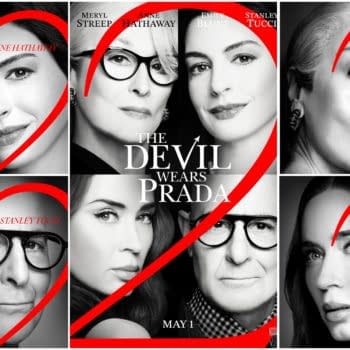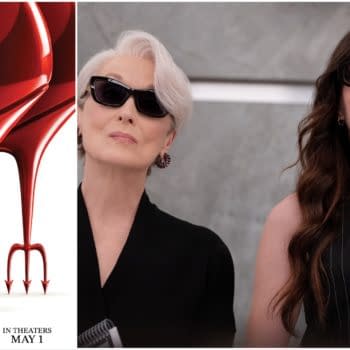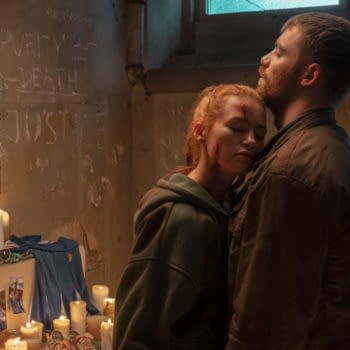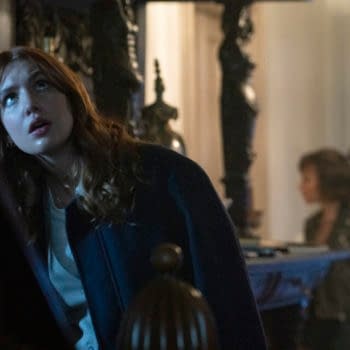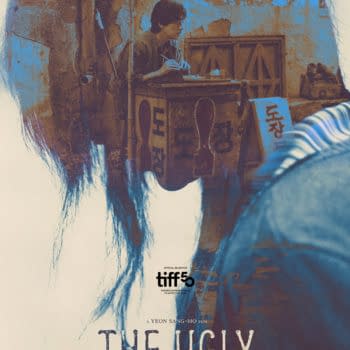Posted in: Disney, Movies, Pixar | Tagged: disney, movies, pixar, turning red
Turning Red Cast Talks Proper Representation of Female Friendships
Turning Red came out this weekend, and it has caused quite a stir with some parents who think it promotes kids rebelling against their parents. However, we here at Bleeding Cool think it promotes something much more important; authentic female friendships. It's a trope that teenage girls aren't going to be supportive friends, they aren't going be true friends, and they are going to be catty. The representation of true female friendships is something we've seen from the first footage of Turning Red, and the whole movie was even more faithful to that theme. So while these kids might be rebelling a bit from their parents, as teenagers do, they have a strong support system to back them up. We got the chance to ask the cast about overturning these tropes during the virtual press conference for the movie.
"I don't know who was in charge of that because that was not my experience," said Ava Morse, who voices Miriam in Turning Red, "but then we start behaving like those tropes because that's what we see."
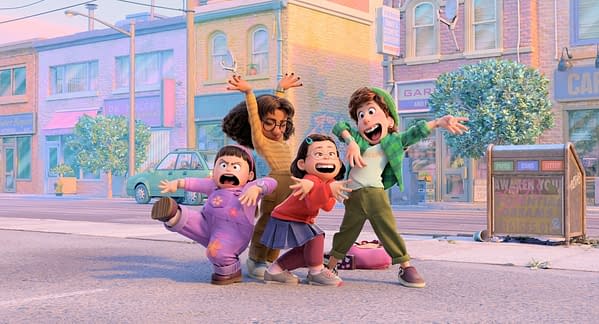
"Well, it's important because those tropes are wrong. Very wrong," said Maitreyi Ramakrishnan, who voices Priya and is a story artist for Pixar as well. "And when we finally got the chance to make this female friendship, it was very important that it was authentic. And so Domee [Shi] talked a lot about her own experiences with her friendship, and she would hate to add onto those tropes and just [keep] it real, you know? So we actually shared a lot of different stories of the moments that we love in terms of female friendship. And then she actually asked a lot of different people within the studios too to get a really authentic insight on what girlfriends are really like and how they're there for each other."
"I'm just gonna jump in," said the always amazing Sandra Oh, who voices Meilin's mother, Ming, a character who goes on a unique journey throughout Turning Red. "I think that question is extremely important, because having young women and young girls in my life, watching television and films them over the years, you just realize, I don't know who sets this up, that girls are like this because I don't think it's very true. And I think this is an extremely good representation of deep friendships, and the highs and the lows."
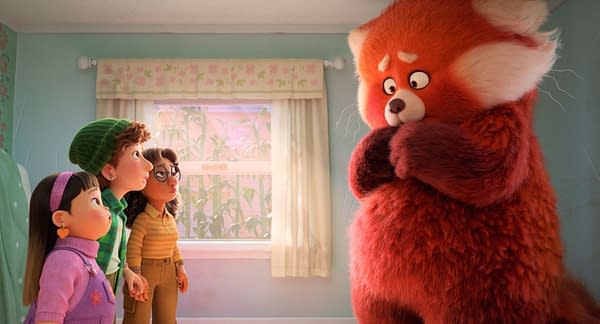
"I think with TV and film, we always portray that your love interest is the one that you should be closer with, like, that's the real bond." Ramakrishnan continued hitting hard on the trope that so often, love interests become the focal point of stories about teenagers and not platonic friendships that could be lifelong. "That always made me sort of skeptical, because wouldn't the childhood best friend knows you better? Don't they know what your favorite ice cream flavor is? Don't they know what to do when you're having a breakdown? That's important. And growing up, if you don't have that, you can then get all the lovely internalized misogyny where you're like, 'Oh, yeah, I only like hanging out with guys because girls are, like, so dramatic.' No. No. We should not [do] that. So it's so awesome that we have this in Turning Red between the four girls, but you also have to have those crying moments where it's like, 'hey, I really need support. I need someone who just understands me without having to explain myself and explaining who I am and get that weird validation.' You're already feeling valid."
"Yeah, because now my little cousin gets to see this is the kind of girl gang you want," Morse jumped back in when was something we heard from producer Lindsey Collins back in February about presenting the kind of group of friends you hope kids have in their lives. "Where life is chill, you get to be your goofy self that's able to just be who you are. Yeah. And Pixar is already [has] a very wide, younger audience. And I grew up watch[ing] a bunch of Pixar movies, and now this is for a new generation of people who can see what a good, solid, female friendship is like. And being able to be a part of that, I am honored; that is such a cool thing to be able to say."
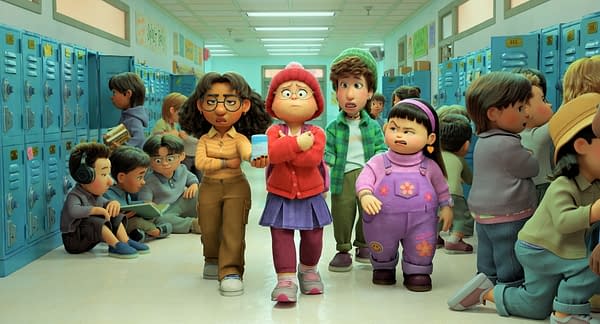
While some parents continue to completely miss the point of Turning Red, it's clear that the people who made and worked on the film understand what they are presenting and how it can change things. It's true that if the only exposure to female friendships that you see represented in media is negative then you're going to assume that is what you're going to get when you get older, not just as a girl but just as a teenager. If media only shows that romantic relationships are the end-all, be-all of teenage life and you don't have one, it makes kids feel like they are somehow failing at growing up. They aren't failing, not even a little, but proper representation and showing kids that it is completely fine to just surround yourself with good friends is so important.
Disney and Pixar's Turning Red introduces Mei Lee (voice of Rosalie Chiang), a confident, dorky 13-year-old torn between staying her mother's dutiful daughter and the chaos of adolescence. Her protective, if not slightly overbearing mother, Ming (voice of Sandra Oh), is never far from her daughter—an unfortunate reality for the teenager. And as if changes to her interests, relationships, and body weren't enough, whenever she gets too excited (which is practically ALWAYS), she "poofs" into a giant red panda! Directed by Academy Award® winner Domee Shi (Pixar short "Bao") and produced by Lindsey Collins, Turning Red was released on March 11th, 2022.







